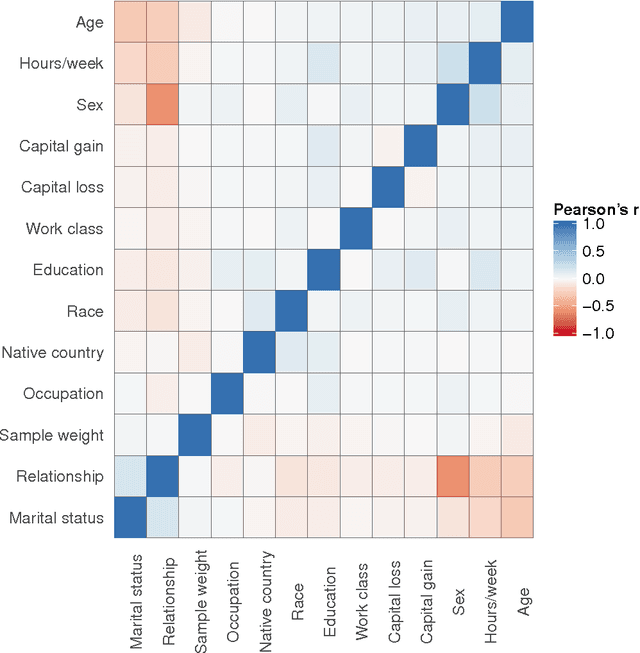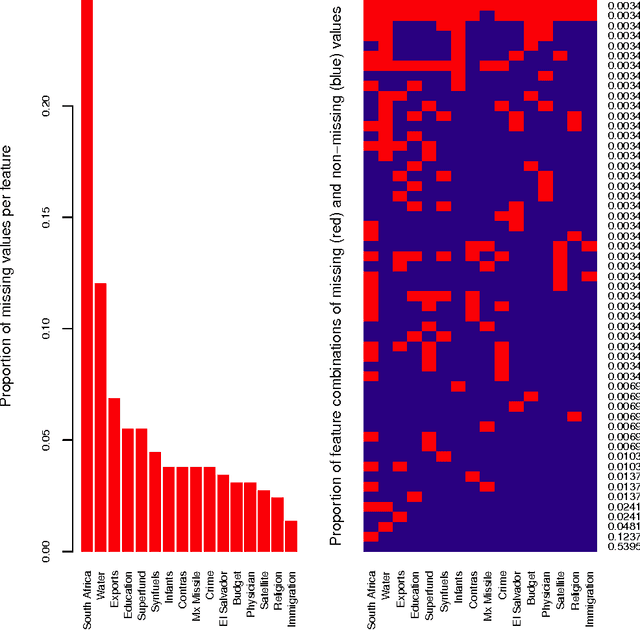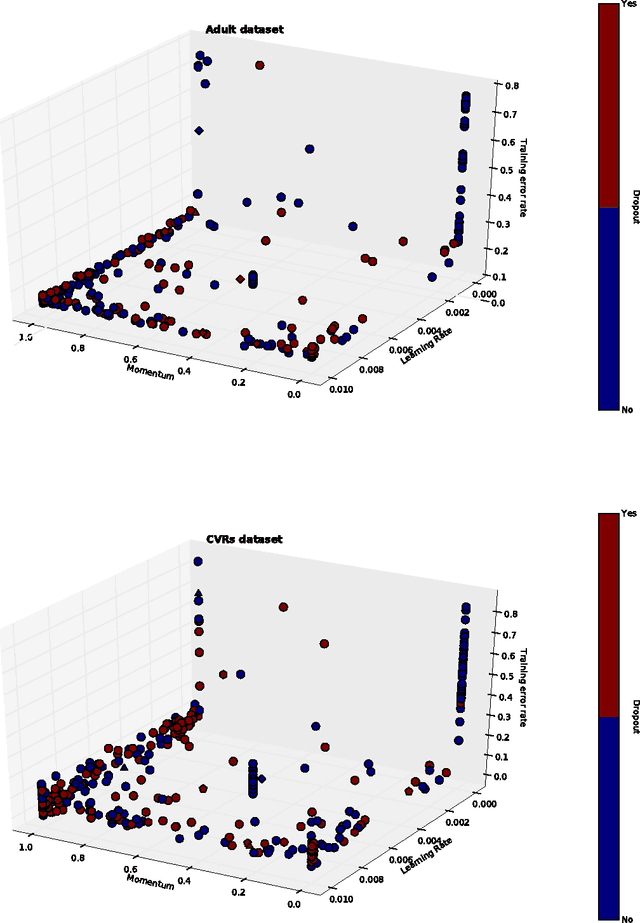Missing Data Imputation for Supervised Learning
Paper and Code
Aug 07, 2018



Missing data imputation can help improve the performance of prediction models in situations where missing data hide useful information. This paper compares methods for imputing missing categorical data for supervised classification tasks. We experiment on two machine learning benchmark datasets with missing categorical data, comparing classifiers trained on non-imputed (i.e., one-hot encoded) or imputed data with different levels of additional missing-data perturbation. We show imputation methods can increase predictive accuracy in the presence of missing-data perturbation, which can actually improve prediction accuracy by regularizing the classifier. We achieve the state-of-the-art on the Adult dataset with missing-data perturbation and k-nearest-neighbors (k-NN) imputation.
 Add to Chrome
Add to Chrome Add to Firefox
Add to Firefox Add to Edge
Add to Edge